Saša Petrović
Birth : 1962-01-02, Sarajevo, Bosnia and Herzegovina
Death : 2023-01-27

Milutin’s harmony of life collapses when his wife Magdalena experiences a car accident, defending her body of a one-year-old son who was entrusted with the care of Milutin. Magdalena remains immobile. Love between Milutin and Magdalena has always been at the highest possible level, and this remains in a series of situations, because the accident never goes by itself. It only remains for them to take care of what they care about, with the help of life circumstances, and that is the happiness of their son Jacob, but for Jacob, as a young man, temptations are only beginning.
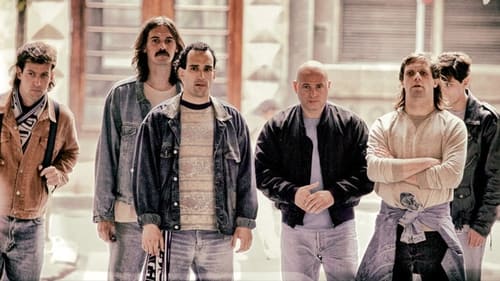
Vozač
ZG80 is a prequel of Metastaze. The movie brings back its characters to prewar Yugoslavia where they, as part of Bad Blue Boys, go on a football match in Belgrade to see Dinamo play against Crvena Zvezda. They encounter guest fans, their arch rivals Delije, in a series of events that lead to football fans war on the streets of Belgrade.

Mirso
Sabina, a divorced mother of two small children, falls in love with an old friend from the Bosnian war. The two plan to marry, but things go terribly wrong.
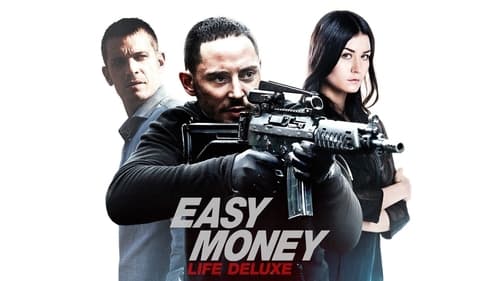
Dragan
JW now lives in exile and is more than ever determined to find out what happened to his missing sister Camilla. Every trace leads him to the world of organized crime in Stockholm. Jorge is about to do his last score - the largest robbery in Swedish history. But during the complicated preparations he meets a woman from his past - Nadja. Martin Hägerström is chosen to go undercover into the Serbian mafia, in order to get its notorious boss Radovan Krajnic behind bars. When an assassination attempt is made on Radovan, his daughter Natalie is pulled into the power struggle within the Serbian mafia.

Sulij Barjaktarij
The main protagonists of the film are members of the gypsy family Mirga. Lutvija Belmondo Mirga narrates a story about four generations. Belmondo is the central character of the film, a gypsy king, who decided to establish his own gypsy village. He names it Shanghai. Belmondo makes a living smuggling and his power and influence grow big. He even gets the local police and politics on his side and that helps him to become untouchable for law. But with the downfall of Yugoslavia, smuggling of goods is replaced by smuggling of the arms. Though lucrative the business starts to threaten Belmondo’s personal life and he finds himself at the crossroads. Will he protect his own family or is he going to sacrifice his personal happiness for business ambitions?
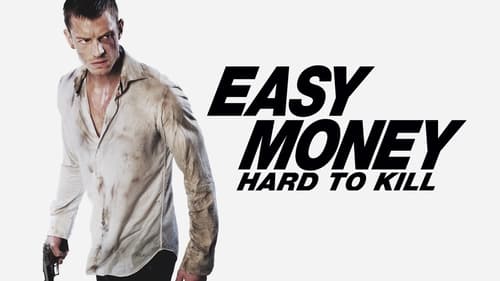
Radovan's man
JW is serving hard time in prison and struggling to get back on an honest path. There are glimmers of hope in his life - some venture capitalists are interested in a new piece of trading software he's developed, and while behind bars he's made peace with an old enemy. This all proves to be an illusion. On leave from prison, and back in contact with his former gang, JW learns that once you've walked in the shoes of a criminal there just may be no going back.
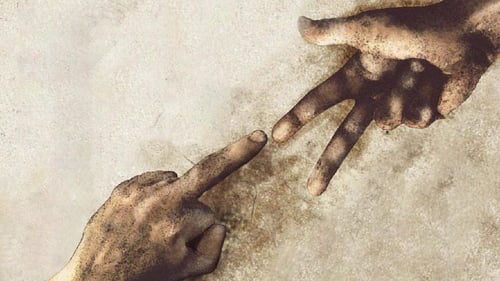
Ibro
The Parade, in a tragicomic way, tells the story about ongoing battle between two worlds in contemporary post-war Serbian society - the traditional, oppressive, homophobic majority and a liberal, modern and open-minded minority... The film, which deals with gay rights issues in Serbia, features footage of the 2010 Belgrade gay pride parade. The film introduces a group of gay activists, trying to organize a pride parade in Belgrade.
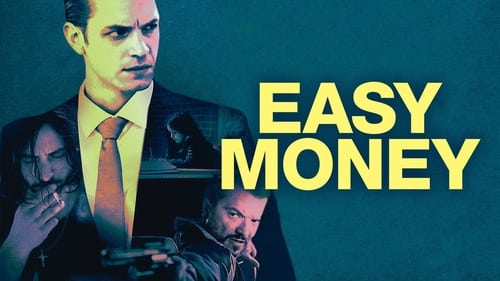
Stefanovic
When JW becomes a drug runner in order to maintain his double life, his fate becomes tied to two other men: Jorge, a fugitive on the run from both the Serbian mafia and the police, and mafia enforcer Mrado, who is on the hunt for Jorge.

Fudo
Story about a forty-something Sarajevo taxi driver named Fudo (Saša Petrović) who decides to take control of his own destiny. Fudo doesn't earn much, so he supplements his income by offering tips to the local criminal syndicate and turning a blind eye to their nefarious dealings. One day, after offering a particularly bad bit of advice to a violent gangster, Fudo is badly beaten. When Fudo's wife Azra (Daria Lorenci) discovers what has happened, she decides to take the couple's infant son and move out. Now determined to win his wife back and restore peace in the home, Fudo decides to go straight. But cleaning up his act isn't going to be easy, because after borrowing enough cash from black market dealer Sejo (Emir Hadžihafizbegović) to purchase a van and then refusing to aid him in any underhanded dealings, the only person willing to cut him any slack is the sympathetic Azra.
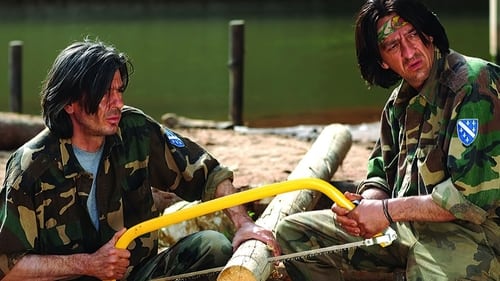
Nemanja
Sarajevo, 1992. They are called Ahmed, Lana, Sado, Saba, Sahbey, Beba, Nemanja, Marx, Matan. They live in and between wartimes. They have "nafaka", the destiny which was bestowed on them by God Almighty. They have enough gallows humor and courage to believe in freedom and happiness.

Based on a true story, the film presents events similar to those in the Lukić indictment.

Husnija
Two years after the Bosnian civil war, a town that is slowly rebuilding itself must whip together a democracy when it's announced the U.S. President Bill Clinton might be paying a visit.
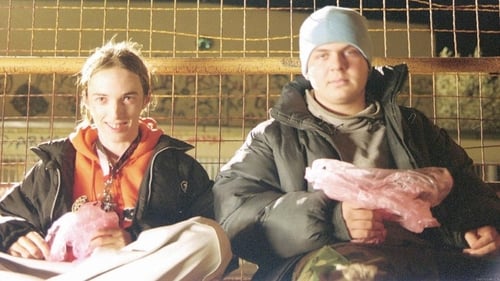
Granapdžija
At the traditional Muslim funeral service for his father Fikret Varupa, sixteen year old boy from Sarajevo, learns that his father owes money to Hamid, a man he does not even know. The debt is considerable and Hamid does not want it to go to the grave with the body, so the debt automatically passes from the father to the son. Since in Bosnia this way of collecting debts, at a funeral, is considered to be utterly humiliating, it is never, ever applied. Fikret and his entire family become subjects of ridicule. Fikret, who is practically still a child, is decisive to "redeem his father's soul". Wishing to repay his father's debt and to secure the forgiveness, Fikret wanders into the real world of Sarajevo, the world that is ruled by post-war chaos, misery and poverty and becomes an ideal target for two corrupted policemen who wish to "help" him: they plant the kidnapped girl on him.

(segment "Ružina osveta")
A three-part anthology film. Story 1: A released convict traces his girlfriend and other people who were responsible for his imprisonment. Story 2: A factory worker Pantic comes to Belgrade where he befriends a waiter. Having no overnight lodge, Pantic spends the night in the bar where his new acquaintance works, and becomes a victim of group of people who start picking on him. The initially protective waiter joins their harassment, and that's when Pantic pulls out a knife. Story 3: A female reporter gets back from the province without getting job done. On her way back, she meets an abused woman who lives with her husband in a trailer, making grill. The two will run away together, facing many hazards and trials.

Raka
A high representative goes by the narrow macadam road to the grand opening of the facility in a mountain village, another new victory of his own. In the car with him was not his wife but his mistress, a young and rather attractive girl. The car stucks in the quite large and deep puddle in the middle of the country road...
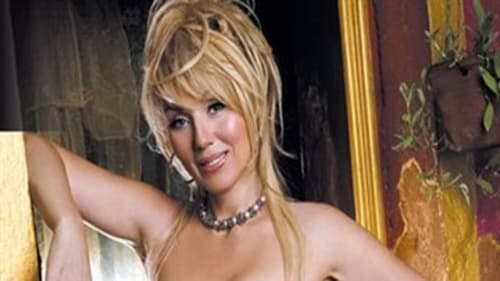
Čaki
Lepa Brena goes to one of the islands of the Adriatic, on a working holiday, but due to the holidays and planning the next tour, false news that the notorious island Lepa Brena requested a special guest for the tour. The news will completely disrupt the thrill and to potential tour guests, tourists and members of the Sweet Sin and the whole island.
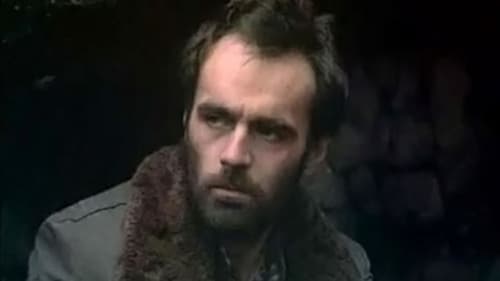
Daidža
After the release from prison, small-time criminal is marrying his girlfriend and lives a straight and poor, but happy life with her and her daughter. However, his happiness is shattered by wife's infidelity. Driven mad by jealousy, he kills her and her lover and runs into mountains, thus escaping law for months. This film is based on the true story about Junuz Kečo, last Bosnian outlaw.

Vozač
An acknowledged and proven factory worker gets fired after workers' strike.

Latif
A bitter coming-of-age story about boy who grows up in a remote Bosnian village shortly after World War II.

Čabarabdžić

Kum (uncredited)
Tito's break-up with Stalin in 1948 marked the beginning of not only confusing, but also very dangerous years for many hard-core Yugoslav communists. A careless remark about the newspaper cartoon is enough for Mesha to join many arrested unfortunates. His family is now forced to cope with the situation and wait for his release from prison.

















